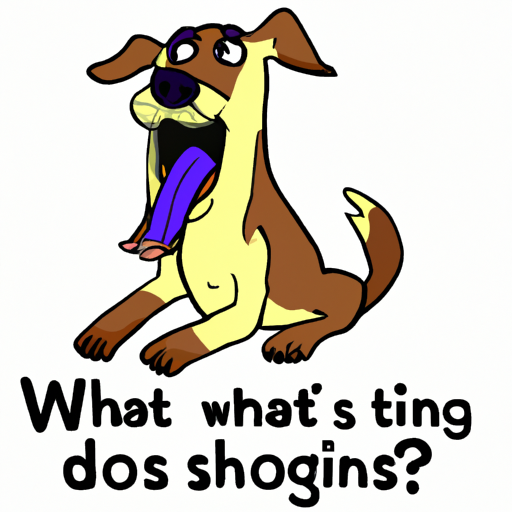If you’ve ever spent time with dogs, you’ve probably noticed that they seem to yawn a lot. As a responsible caregiver, you may have wondered, what does yawning mean in dogs? Is it a sign of sleepiness as it is in humans, or does it signify something else? In this article, we will explore the various reasons behind canine yawning and provide insights to help you better understand and respond to your dog’s behavior.
Table of Contents
- Yawning and Canine Communication
- Yawning as a Calming Signal
- Yawning as a Sign of Stress
- Yawning as a Physiological Function
- The Role of Contagious Yawning
- Frequently Asked Questions
Key Takeaways
- Dogs yawn for a variety of reasons, not just because they’re tired.
- Yawning can be a calming signal, a stress indicator, or a physiological need.
- Contagious yawning exists in dogs, especially when they see their caregivers yawning.
- Understanding the context is key to interpreting a dog’s yawn.
Yawning and Canine Communication
Just like humans, dogs use a variety of physical cues to communicate. Yawning is one such signal. However, unlike in humans, yawning in dogs often has less to do with tiredness and more to do with communication. According to The American Kennel Club, dogs may yawn as a response to a variety of emotional states, including stress, excitement, or even anticipation.
As OneTopDog notes, understanding your dog’s body language is crucial in strengthening your bond and attending to their needs.
Yawning as a Calming Signal
One of the theories about yawning in dogs is that it can serve as a calming signal. According to renowned dog trainer Turid Rugaas, dogs use specific signals, including yawning, to calm themselves down and signal peaceful intentions to others.
If your dog yawns when another dog or person approaches, it might be their way of saying, “I mean no harm.” Understanding these signals can help prevent misunderstandings and aggression.
Yawning as a Sign of Stress
Conversely, yawning can also be a sign of stress or anxiety. If you notice your dog yawning in situations that are potentially stressful—like a visit to the vet, the arrival of guests, or loud noises—this could be a sign of discomfort.
OneTopDog’s guide on dog stress signals provides additional insights on this. As a caregiver, recognizing these signs early can help you intervene and create a more comfortable environment for your dog.
Yawning as a Physiological Function
Of course, yawning is also a physiological function. It helps increase oxygen levels in the bloodstream and cools the brain, which can be particularly useful after a nap or during physical exertion. So, if your dog has just woken up from a nap or finished a vigorous game of fetch, that yawn could be nothing more than a biological response.
The Role of Contagious Yawning
Interestingly, dogs are one of the few species that exhibit contagious yawning—the phenomenon where seeing someone else yawn makes you yawn too. Research suggests that dogs are more likely to “catch” a yawn from their caregiver than from a stranger, indicating a potential empathetic reaction.
Check out this fascinating study on contagious yawning in dogs for more information.
Frequently Asked Questions
1. Is it bad if my dog yawns a lot?
Not necessarily. Frequent yawning can be an indication of stress, so it’s important to observe the context and identify any potential stressors. However, it can also be perfectly normal behavior.
2. Does my dog yawn because he’s tired?
While dogs do sometimes yawn when they’re tired, yawning can also be a sign of stress or a communication signal.
3. Can dogs yawn out of boredom?
Yes. Boredom can be stressful for dogs. If your dog yawns a lot when there’s not much going on, it might be time for some mental stimulation. Check out these fun activities for dogs to keep them entertained.
4. Why does my dog yawn when I pet him?
Your dog might be yawning to show submissiveness or to signal that they’re calm and not a threat. Alternatively, if petting is associated with stress (like if it often precedes a bath), your dog might yawn out of anxiety.
By understanding the many meanings of yawning in dogs, you can deepen your bond with your furry friend and provide them with the care and comfort they deserve.



